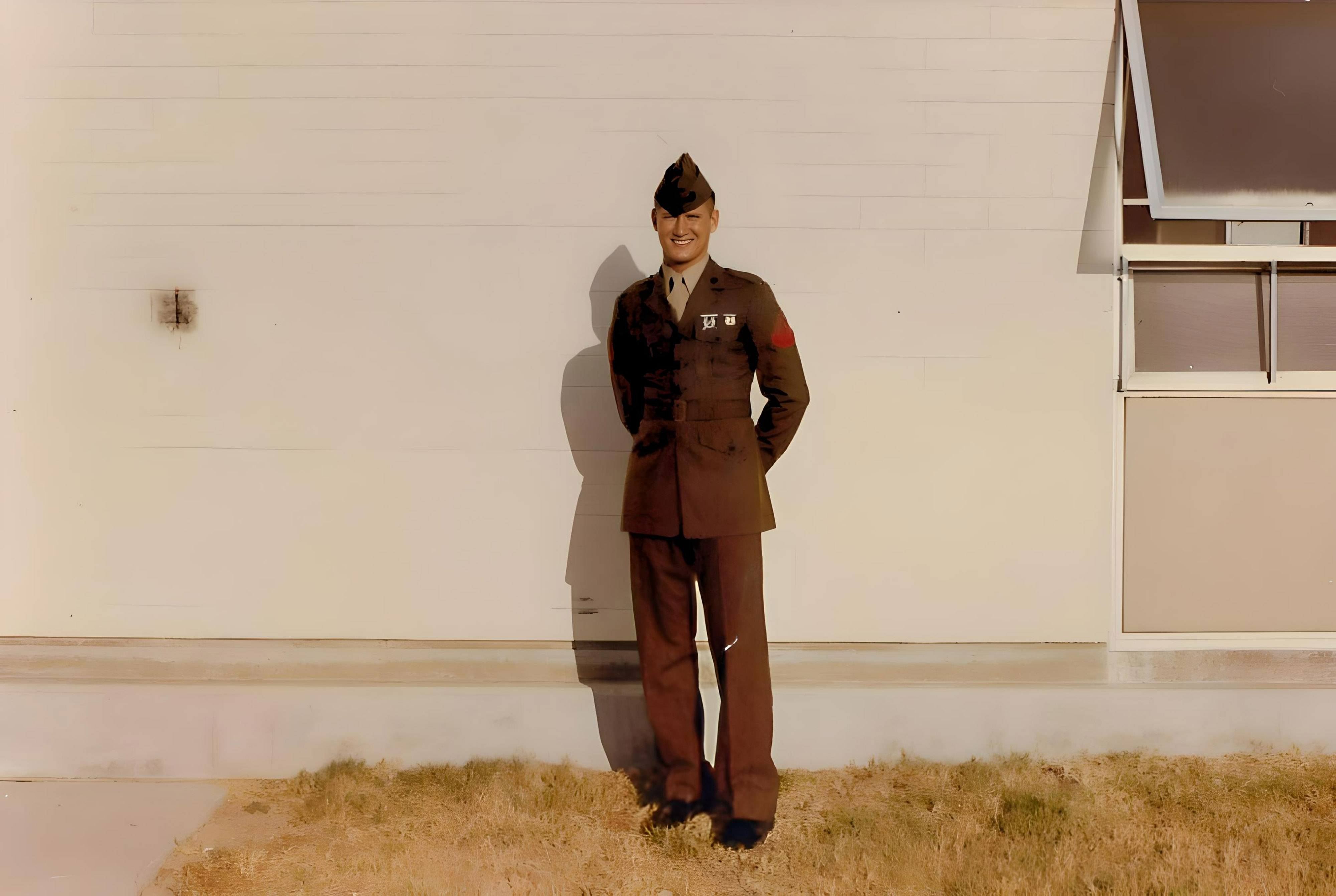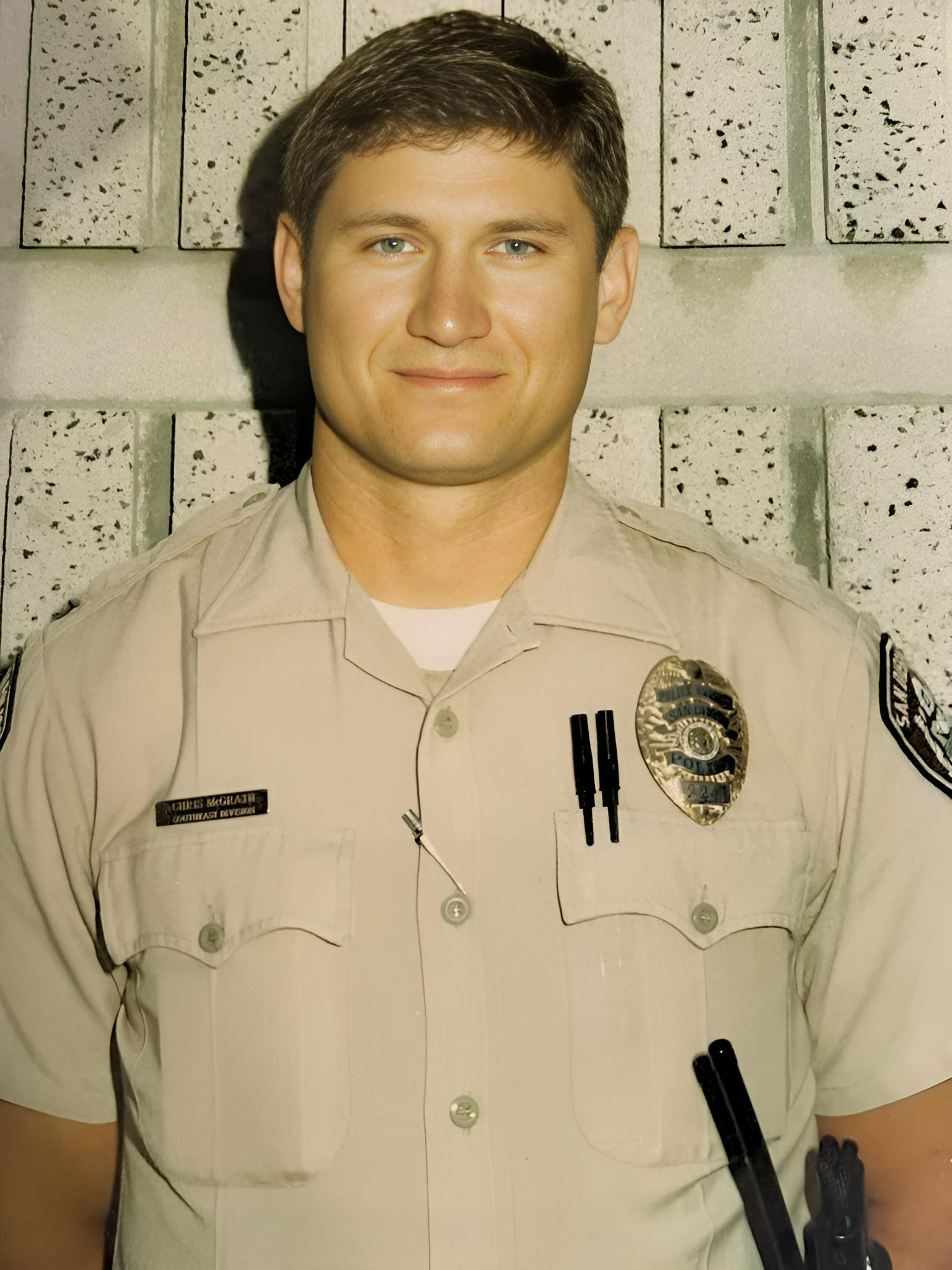SDPD Veteran Spotlight
Meet Executive Assistant Chief Chris McGrath, the Military Liaison of the San Diego Police Department, slated to retire in January 2024. As we commemorate Veterans Day, Chief McGrath graciously shares reflections on his Military and Public Safety career in this exclusive Q&A.
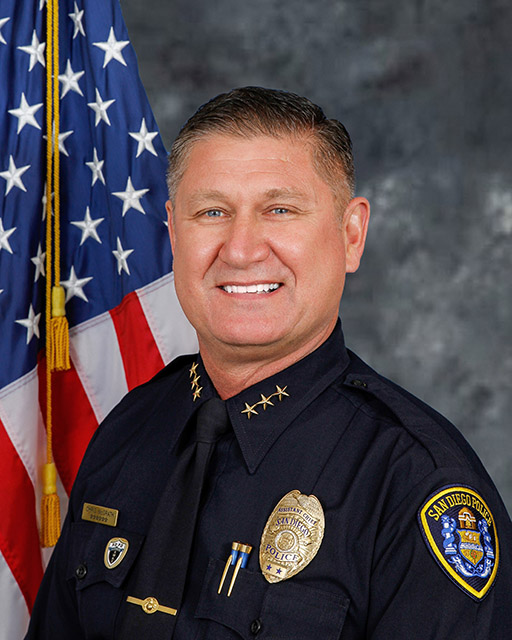
How many years did you serve with the Marine Corps? How many years have you served with SDPD?
I served with the United States Marine Corps for four years. I enlisted in the delayed entry program out of high school in 1982 and entered boot camp in October of 1983. In October 1987, I separated as a Corporal. I was a Military Policeman with duties in patrol and the Special Response Team (SWAT) at Camp Pendleton. I finished my tour of duty in the motorcycle patrol at Camp Butler in Okinawa, Japan.
I have served with the San Diego Police Department for over 35 years. I have held a position in almost every area of the department. In my current assignment, I am the Executive Assistant Police Chief and support the Chief of Police. I am responsible for the day-to-day operations of the department and oversee the procurement and expenditures of an annual budget of 623 million dollars.
Can you share any lessons learned or important principles from your experience in the Marine Corps that you carried forward into your career with the SDPD?
I remember a training run I went on with my platoon during boot camp. The drill instructor was an avid runner and initially started us out on a relatively slow pace for our first couple of formation runs. Over the weeks, he increased the difficulty. Eventually, we got into better shape, and on one of those runs he decided to test us and see how far and how fast he could take us before we gave up. It was a personal challenge. As the run went longer, several people fell out until it was just me and two other guys. At one point, the drill instructor said to us, “If you want, you can give up and save yourselves.” He was kind of tormenting us because none of us ever thought of giving up. It’s not what Marines do. However, after saying that, he quickened the pace into a steady sprint and shouted, “Keep up!” I was exhausted and felt my heart coming out of my chest. It was hard to catch my breath to the point where I felt like I was going to pass out. He went into a full sprint and all three of us struggled to keep up. He then said, “Your mind will give up before your body does! Give me another 100 yards.” We ran the next 100 yards where I thought we would stop. He then said, “Give me another 100 yards!” I felt myself getting to the point where my legs were numb, and I couldn’t feel my feet hitting the ground. I couldn’t quit. As we neared the hopeful end, the drill instructor yelled in a very loud voice, “Give me all you got on your own.” He peeled off and I assumed he was watching to see who won. The three of us raced down the road laughing that we beat the drill instructor. He saved himself.
The lesson I learned was that you will get tired being in a position of leadership and influence, both physically and mentally. But you need to stay engaged for the sake of your employees and the organization. You will lose sleep, agonize over decisions impacting people, endure harsh criticisms, and be targeted by the disgruntled. There are days when it would be easier not to put effort into it because it would be too hard. When your back aches, your knees are sore, you didn’t get lunch again, saving yourself isn’t the best option when people depend on you. People need you to go another 100 yards to support them even when getting there would be inconvenient, painful, or stressful personally.
What was your journey like from the Marine Corps to a career in public safety? What inspired you to become a police officer, and how did you rise through the ranks to become the Executive Assistant Chief?
I didn’t receive my master’s degree until I was well into my career. Coming out of the service, I only had a high school education. I remember being discharged and having only been married for six months. During that time, several military positions were eliminated as a way of reducing the Vietnam War levels of staffing. As a result, an influx of service members flooded the job market. After searching for almost a week for a job, I was able to rely on some welding skills to get a job at a business that manufactured truck bodies for construction firms. I made $2.75 an hour as a starting wage. My job was to pick up hot metal and salvage scrap pieces for the welders. I got paid every week. I made enough to put gas in my truck, buy a gallon of milk, a couple of pounds of hamburger, and some other groceries. What was left literally went into a shoe box for other expenses. I hoped that my military policing experience would help me get a job in civilian law enforcement. The inspiration for me was simply the need for a better quality of life and future for my wife and family.
I applied for both the Sheriff’s Office and the San Diego Police Department and went through both their hiring processes. Ironically, both called me on the same day to tell me that they wanted to hire me for their academy. SDPD called me first and I accepted.
My career was helped by timing and opportunity. The support from other people helped me by giving me a chance to prove I could do a job well. I owe so many people who believed in me. I also was blessed with a supportive wife who always told me to “go for it” even though it meant more responsibility and time away from family.
Now, as you stand at the peak of your career, could you reflect on a particularly challenging or unforgettable moment that left a lasting impact on both you and your professional journey?
There are so many memories of different radio calls and investigations that I went away going, “Wow”. It is hard to put any of those incidents in a ranked order. They were different in their own way but equally impactful. I will say that the hardest thing I ever had to do was knock on the front door of a private residence and tell a mother of a deceased officer that their loved one was killed in the line of duty. I have two boys of my own who are police officers. I couldn’t imagine how cruel and unfair that notification is to a family. My heart was broken for them. It still is.
As you approach the culmination of your distinguished career, how would you like people to remember you?
Honestly, I don’t have any control over what people think of me. My job required me to be so much to so many people. In their eyes, I succeeded or fell short. I hope one thing they would see is that whenever I came to work or was awakened by the phone at home at 2 o’clock in the morning, I strived at every moment to support those who were actually doing the job of keeping our citizens safe.
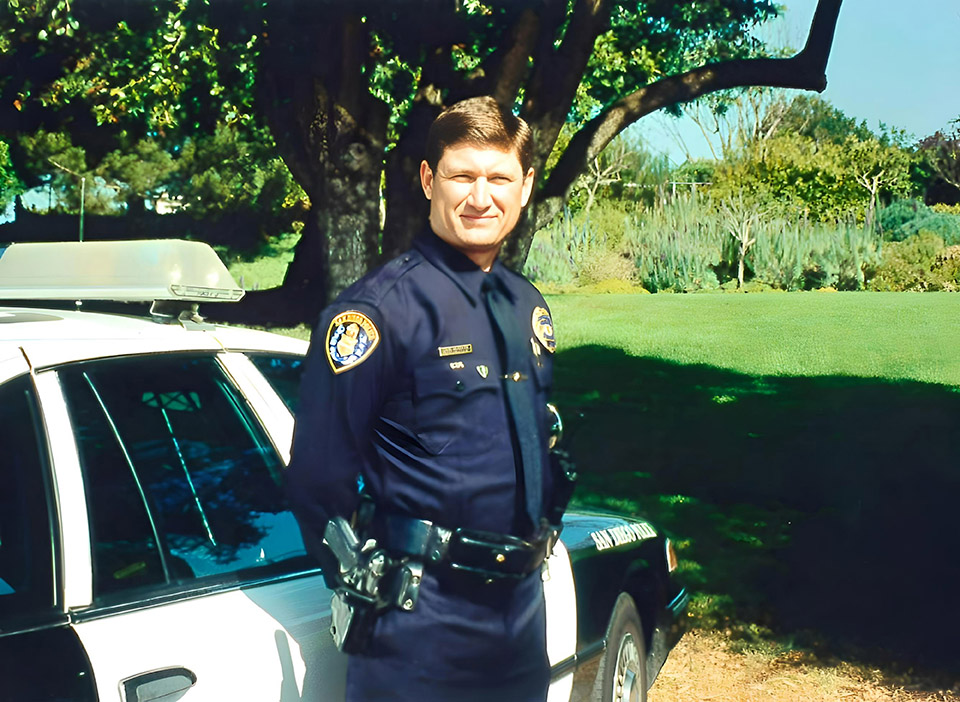
What are your plans for the future, and how do you hope to stay connected to the law enforcement community and community at large?
I hope to take a few months to just de-couple from the daily grind. My wife, Alicia, has her travel brochures all over the dining room table and reminds me of all the vacations I promised her over the last few years. That’s first and foremost. I will always remember the SDPD fondly and will support the rank and file any way I can. I have a lot of friends who have retired and joined retirement groups and associations. They are very active in supporting victim advocacy and social programs aimed at making our communities better for all. I plan on helping with those efforts and continuing to be involved in veterans organizations.
What words of wisdom would you like to share with us?
As a leader, you have to embrace the responsibility of your position. I am fond of telling newly promoted command staff, “Remember, it may not be your fault, but it is your problem.” After a few weeks in their new seat, they get it.
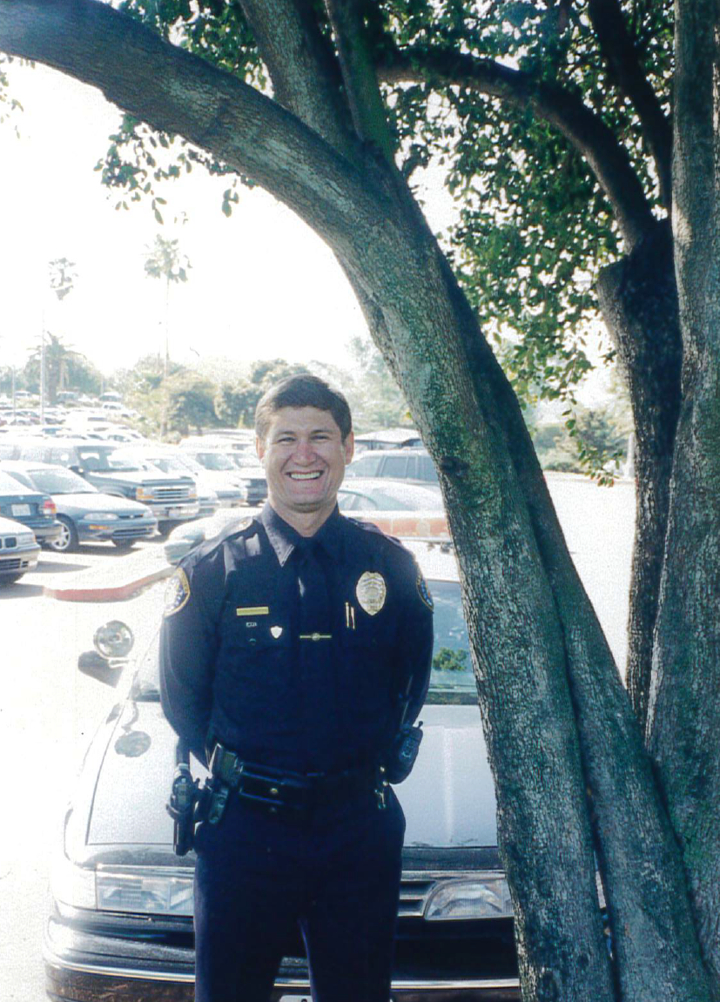
To all veterans of all branches: thank you for your sacrifice, your bravery, and the example you set for us all. Thank you for your service!


